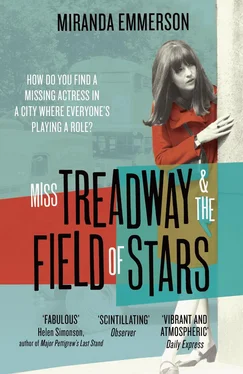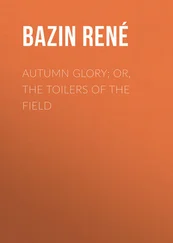1 ...6 7 8 10 11 12 ...17 After lunch they bundled up in everything woolly they owned and went to watch the trains in Liverpool Street station. When Orla had the money she would treat Gracie to a cup of hot chocolate from the buffet or a tube of fruit pastilles from W. H. Smith. In leaner months she would pack a little picnic of biscuits or butter sandwiches and they would wait for a bench to perch on and play I Spy and Twenty Questions and Botticelli – the characters in the latter taken entirely from the pages of children’s books, for Gracie only knew the worlds of Andersen and Grimm and Lewis.
‘Are you a princess but only after marriage?’
Gracie thought about this. ‘No,’ she said at last, ‘I’m not Cinderella.’
‘Are you furry and mistaken for a witch?’
‘What’s that?’ Gracie frowned at her mother as if Orla was being grown up and clever just to annoy her. ‘I don’t know.’
‘The cat. Musicians of Bremen. The robbers think she’s a witch. I’ve got a proper question! Are you royal?’
‘Yes,’ said Gracie with a haughty arch of one eyebrow, ‘I’m a queen.’
‘Of course. Okay, okay. Did you send your neighbour a little gift which could have doomed him?’
Gracie blinked and stared out towards the chuffing, chugging, waiting, steaming trains and watched the great black hands of the great white clock sweep round. Orla felt a pang of regret that she had made the question so hard because she could feel sadness leaking out of her daughter. Was she – as a mother – meant to coddle her daughter or challenge her? She never really knew for sure, so in her own haphazard way she would do first one then the other, just as she felt inclined at that moment in time.
‘I don’t know,’ Gracie said in a very small voice.
‘Sorry. Was that mean? I’m the Emperor of Japan with his mechanical nightingale.’
‘Okay,’ said Gracie, clearly fizzing with annoyance. ‘Have another question.’
‘Are you queen of a dying world?’
Gracie fixed Orla with a long, withering look. ‘Yes, clever Mummy. I am Queen Jadis and you win …’ she threw her arms up towards the ceiling, ‘everything.’
‘You’re really narked with me, aren’t you?’ said Orla.
‘You make it too hard. I’m four .’
‘I know. Mammy knows.’
‘You shouldn’t make me cross.’
‘Shouldn’t I?’
‘I can make the world blow up.’
‘Really? And how do you do that?’
‘I say the deplorable word.’
‘Well, you should do it. Go on, Gracie, blow it all to bits. Just tell Mammy one thing first. What is it?’
‘Bum,’ said Gracie. ‘Bum is the deplorable word.’ And she held her mother’s stare for half a minute until Orla’s face cracked into a bright-toothed smile.
The men in their camel-coloured coats swept past and the trains honked and blew out steam that seemed to scorch the cold air above their heads. Mother and daughter held hands and watched all the people in the world pass by, aware only of the features and topography of their strange and dazzling bubble life together.
Tuesday, 9 November
At half past ten Rachel brought the remaining customers their bills on little silver plates with tiny pieces of Turkish delight around the edges. At ten to eleven Ottmar turned on the main lights in the coffee house, flooding the space with a harsh yellow glow. By five past eleven the bills had been paid and Ottmar was ready to lock the doors.
Rachel and Helen cleared the tables, blew out the candles, stacked the plates by the sink and started to sweep and scrub the restaurant clean. In the kitchen Mahmut scoured the surfaces and washed down the hob. Ottmar brought the radio up to the hatch and tuned to the Light Programme for the last hour of Jazz Club. All but one of the overhead lights was turned off and the cafe sank back into a gentle night-time space where the silver mirrors on the walls threw strange shafts of light across the floor and the ghostly, mesmeric sound of Stan Tracey playing ‘Starless and Bible Black’ seemed to echo, bounce and flutter against every wall. The people in the cafe moved slower now, feeling the night soaking into them, filling their arms and legs with darkness and a dreamy quiet that felt like drunkenness and sleep.
Ottmar sat on a stool at the counter behind the hatch and arranged in a series of little metal bowls a late supper of eggs and flatbread and spinach and yoghurt. He cut up the end of the coffee cake and arranged a pyramid of squares on a blue china plate and then he carried the plates and the forks and the dishes of food and laid them out on two of the longer tables which he pushed together.
He noticed a blank, black human shape standing at the glass doors to the front.
‘Helen!’ Ottmar called and Helen let Anna in. Ottmar waved his hand for Anna to join him at the table as the others cleaned and swept around him. Anna pulled off her coat and gloves and scarf and flung them down over the back of a chair.
‘How are you doing today?’ Ottmar asked.
The question made Anna want to cry, though she didn’t really know why. ‘I went to look for her.’
‘For Iolanthe?’
‘I walked the Strand and the banks of the river … past The Savoy. I looked for her in St Paul’s Cathedral. I had this sense of her seeking refuge from something. I walked in there and I started to believe that I would see her sitting at the end of a pew or hiding in the shadows. But once I’d looked around it didn’t feel like somewhere where anyone would go seeking refuge. So much grandeur. So much pomp and frilly woodwork, lights and gold. It looked like a theatre. And that’s the last place Lanny would run.’
‘You’re sure she ran away?’ Helen asked her.
‘I have to believe it.’
‘From what, though?’
‘From us?’ Anna shrugged. ‘I don’t know. Money trouble.’
‘Men,’ said Rachel.
Anna shook her head. ‘I went to meet a policeman today and he asked me questions and he showed me the interview Lanny did and it’s full of mistakes so I don’t even know if we can trust it but it said she’d been going out to the clubs. Like the jazz clubs and the ones down Carnaby Street.’
‘Does that seem likely?’ Ottmar asked.
‘Not really. She never even talked about clubs or music or men or any of that. But then the man from the paper claimed that she’d been seen coming out of Roaring Twenties more than once.’
Helen and Rachel threw their rags and brushes into the corner of the kitchen, stripped off their aprons and used the edges to scrub the smell and slick of grease from their hands. Mahmut brought out a pot of coffee and a bowl of sugar and sat at the end of the table slapping his face violently with his hands as if to beat out the tiredness. The music from the radio changed and now the notes rippled through the air like the smell of grass on a clear spring day. The lights seemed to burn a little brighter above them and slowly, imperceptibly, the pace of their movements changed. Anna poured herself a cup of coffee and ate a plate of spinach and yoghurt, which tasted like midsummer and helped to draw the chill from her bones.
Ottmar’s mind drifted free of the assembled group and took him back to Melanippus’s vast living room in Nicosia with its white marble floor and long dark leather seats. In a former life he’d written book reviews for a Greek magazine in his native Cyprus. The only Turk on the staff, he’d spent his evenings smoking cigarettes and talking about art and philosophy and life with all the other twenty-somethings who dreamed of flying away to a life of avant-garde delights in Paris or Berlin. Melanippus, the editor, would play jazz until four in the morning: Duke Ellington, Count Basie, Artie Shaw. Ottmar had so desperately wanted to belong and for a little while he had. And now, here in his cafe at midnight with The Harry South Big Band playing ‘Six to One Bar’, he knew that he was not quite locked out of that world; just downgraded to a cheaper room.
Читать дальше












